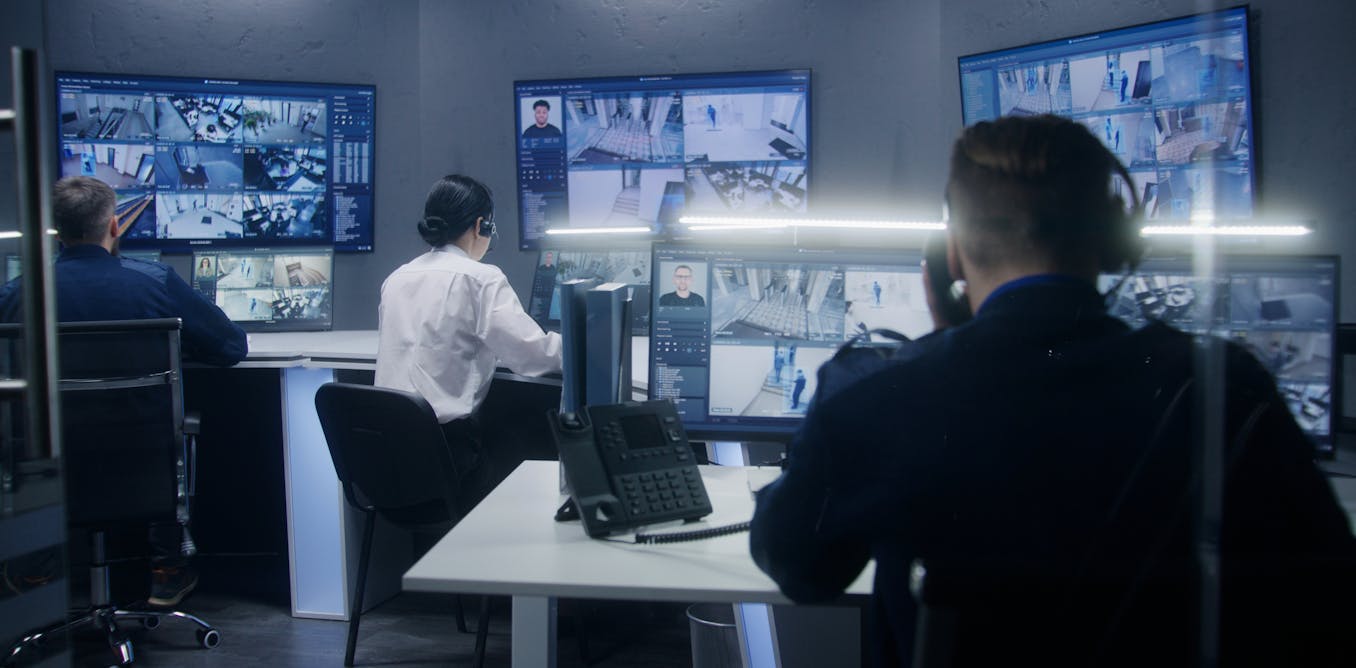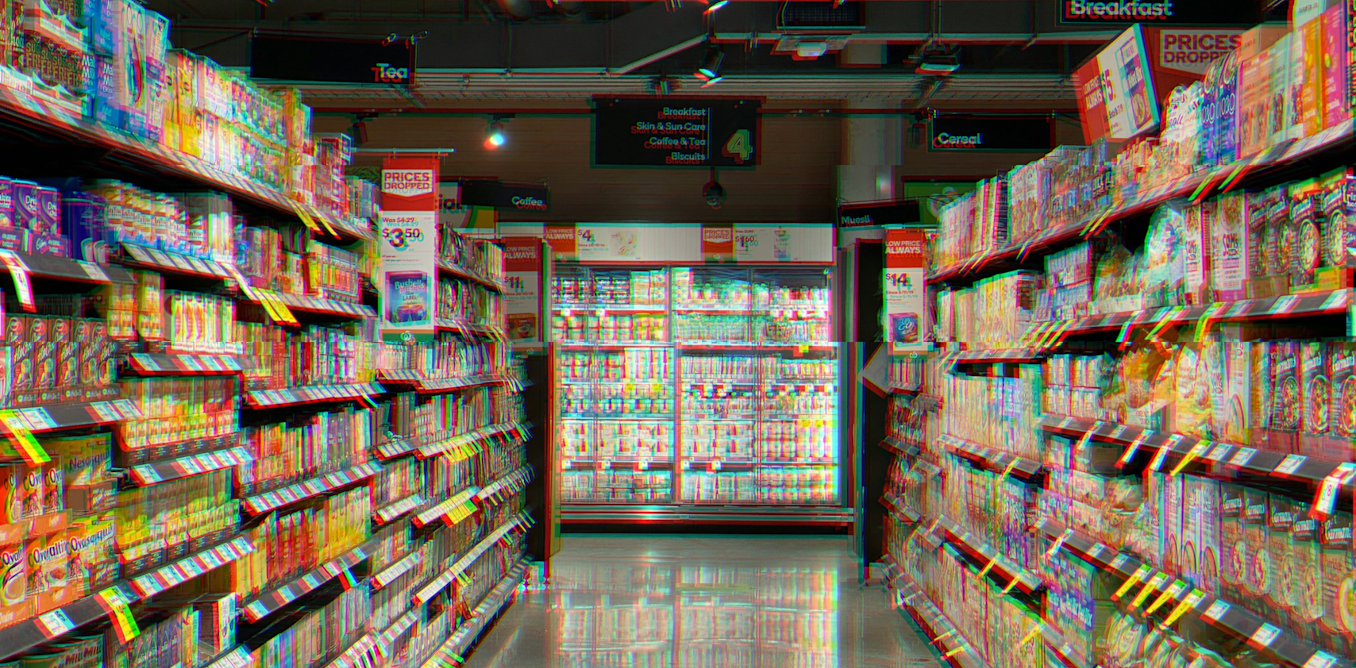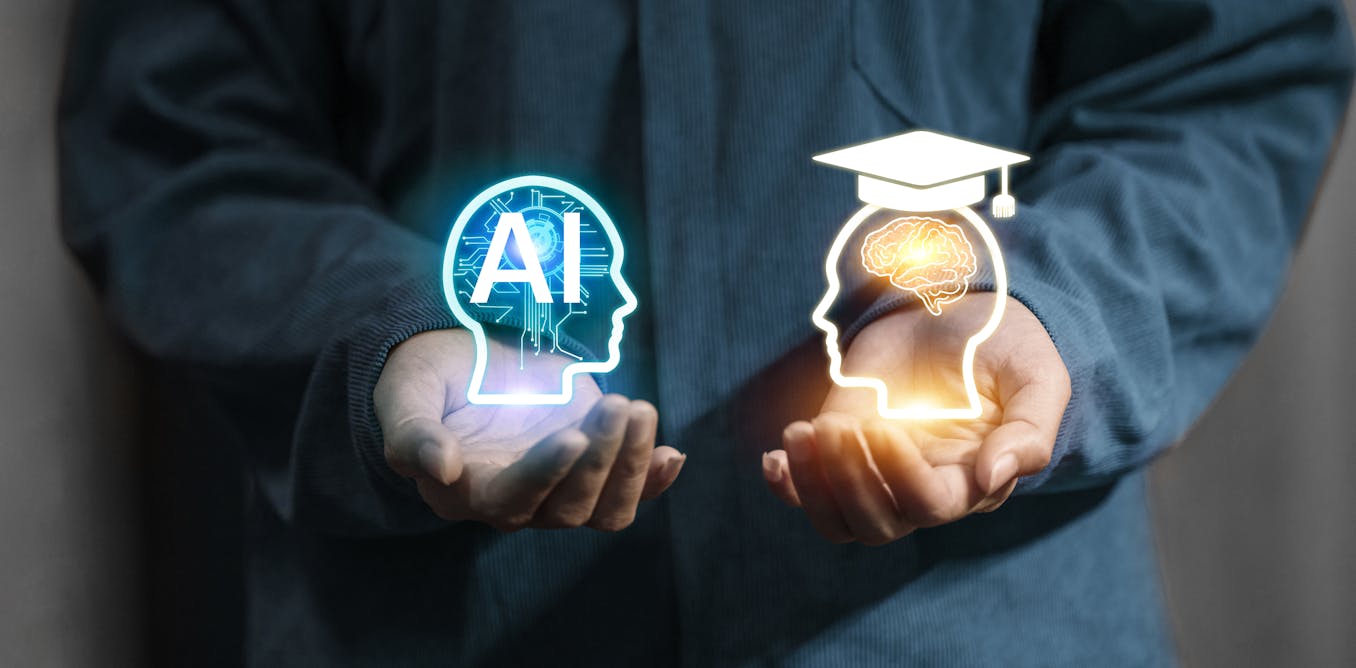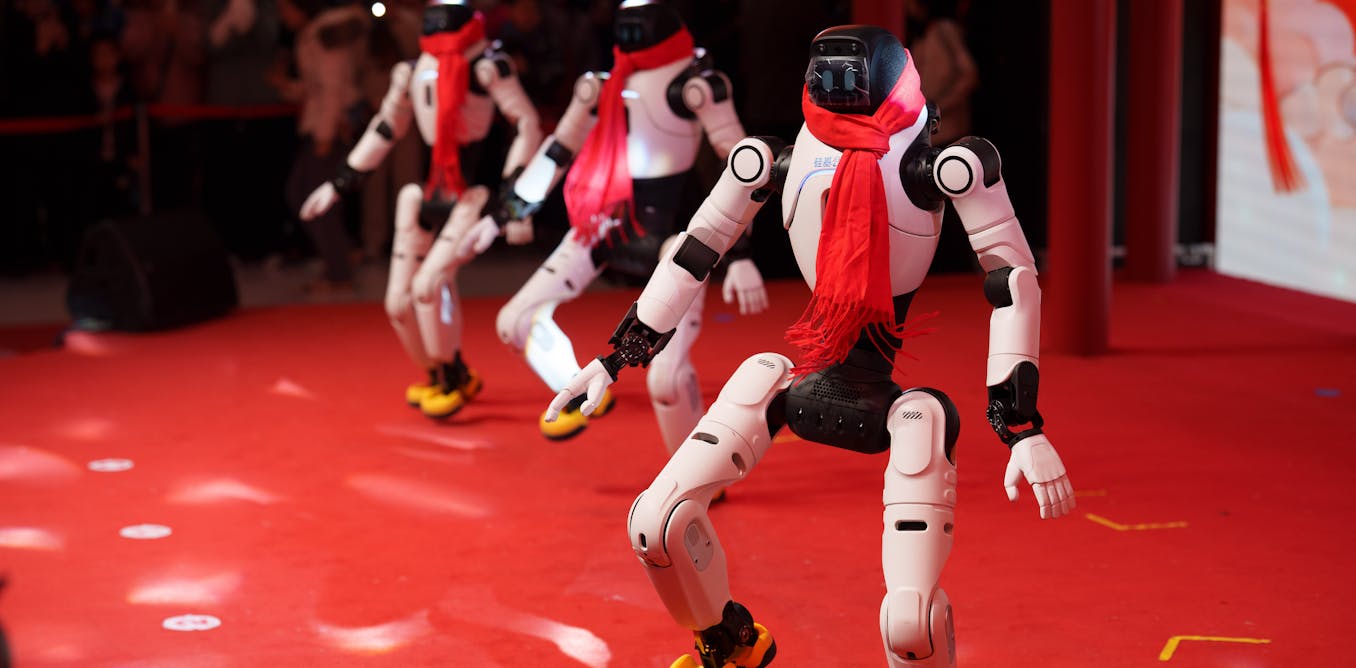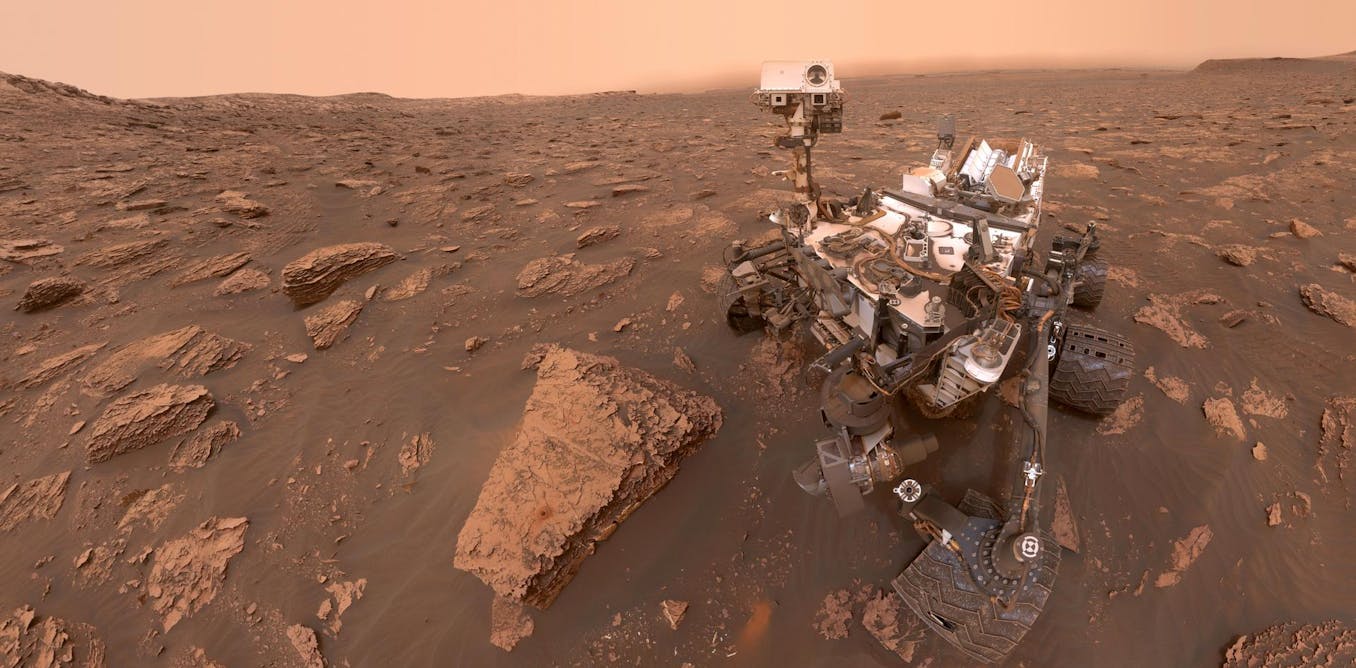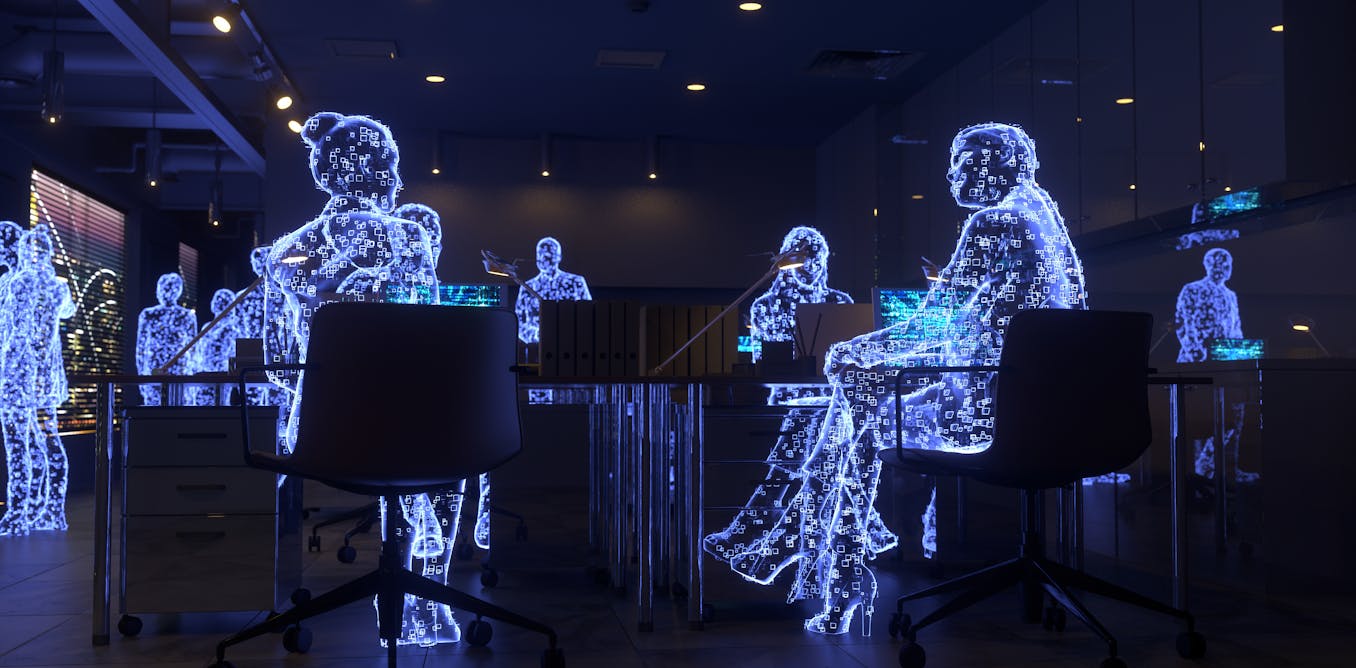The mysteries of the universe have long puzzled scientists and scholars alike, from the origins of life to the nature of dark matter to archaeological puzzles like the undeciphered Linear A script. But with the advent of artificial intelligence, many of these mysteries may soon be solved.
In recent years, AI has emerged as a powerful tool in the arsenal of science and technology, capable of tackling problems that have eluded human understanding. From predicting antibiotic compounds to decoding ancient languages, AI has shown its potential to revolutionize our understanding of the world.
One of the most promising applications of AI is in the field of medicine, particularly in the search for new antibiotics. In 2020, MIT researchers used a machine learning algorithm to discover a new antibiotic compound, named halicin, which was able to kill several deadly bacteria, including those resistant to all antibiotics. This breakthrough has the potential to revolutionize antibiotic drug discovery and combat the rise of drug-resistant infections.
In archaeology, AI is also making strides in decoding ancient languages. Linear A, an undeciphered script from the Minoan civilization, has long confounded scholars. But with the help of AI, researchers are hopeful that the secrets of this ancient language may soon be unlocked.
The integration of AI into scientific research holds great promise for solving some of the biggest science mysteries of our time. As technology continues to advance, we can look forward to new discoveries and breakthroughs that were once thought to be impossible.
Watch the video by Joe Scott
Video Transcript
We live in a universe teeming with Unexplained Mysteries from the origins of life to the nature of dark matter to the fate of Amelia airheart to that thing on the bottom of my foot it’s it hadn’t gotten darker or or bigger or anything but it’s gotten like I don’t know
Angrier that’s the best way I can describe it it’s gotten angrier somehow I think it’s judging me anyway the history of science and technology is basically one of building new tools to solve these Mysteries and in recent years we’ve created possibly the most powerful tool we’ve ever created that is
Of course artificial intelligence I mean after all if your own intelligence isn’t enough to solve a problem just make a new one so today we’re going to take a look at some of the biggest science Mysteries that AI could help solve and probably sooner than you think artificial intelligence was
Obviously the Big Buzzy thing this last year hell I actually put it at number one in my video of the top science stories of 2023 uh and most of the buzz around AI really has been around how it’s either really great for business or really terrible for society or both what
Doesn’t get talked about nearly enough is how the integration of AI is changing our understanding of the world solving problems we couldn’t solve before including solving some Mysteries now I want to be clear I’m not talking about just asking chat GPT who was the Zodiac Killer because obviously chat GPT
Hallucinates and could say something crazy like Ted Cruz which we all know that’s not true but there are some pretty compelling uses of AI that have already happened and more that are going to be coming in the near future so let’s just take a look at some of the more
Interesting ones let’s start with medicine a un report from 2019 said that the death total from drug resistant infections could rise to 10 million by 2050 yeah I’ve talked about this in previous videos that we kind of overdid it with the antibiotics and and now there’s many strains of bacteria that
Have evolved and become resistant um the bugs have outsmarted us Basically so the question question is um the mystery if we want to stay on theme is can we create a universal antibiotic that is not susceptible to resistance because we need antibiotics for sure but we also don’t need the super bugs that they can accidentally create and that’s
Where AI comes in okay so back in 2020 MIT researchers used a machine learning algorithm to find a new antibiotic compound and in fact this compound was able to kill several of the world’s most deadly bacteria including those resistant to all antibiotics they basically made a computer model that was
Able to screen over a 100 million chemical compounds in just a few days as team lead James Collins told MIT news quote we wanted to develop a platform that would allow us to harness the power of artificial intelligence to usher in a new age of antibiotic drug Discovery our
Approach revealed this amazing molecule which is arguably one of the more powerful antibiotics that has been discovered okay here’s how it worked the team had the AI model search for molecules whose physical structure could kill eoli and they trained it on around 2500 molecules including about 1,700 FDA
Approved drugs as well as 800 natural products they then tested the model on the broad institute’s drug repurposing Hub which is a library of around 6,000 compounds and the M discovered one very promising molecule that was different from any previous antibiotics and they named it halison after hell from 2001
Open the pod bay doors hell I’m sorry Dave I’m afraid I can’t do that so they tested hon in a lab against a wide variety of bacteria and it killed almost everything including many that were usually resistant to treatment actually the only one that it couldn’t kill was called Ponoma arganosa
I looked it up it’s actually a bacteria that causes infe in hospital patients usually blood infections and pneumonias now all those tests were done in Petri dishes but they also tested on a mice infected with a bman which is specifically a strain that’s resistant to every known antibiotic but within 24
Hours their infection was completely cleared up so pretty promising and the way it works is interesting or at least I think it’s interesting I’m not an expert on antibiotics but in this case anyway it’s the structure of the molecule that does the work the study says that halison kills bacteria by interrupting their
Ability to maintain an electrochemical gradient across their cell membranes see that molecule just kind of attaches itself to the outside of the cell membrane and because of the structure of that molecule it kind of destabilizes the membrane and just frags the cell and the cool thing about it is that that
Actually makes it harder for the bacteria to develop a resistance in fact they tested it against ecoli for 30 days and saw no resistance at all and ecoli is kind of notorious for quickly developing resistances even better helison could be a possible treatment for diabetes um it I couldn’t find
Exactly how it doesn’t say any specifics but but still that’s cool now what I don’t know and I couldn’t find anything on this was whether or not it only works on harmful bacteria or if it could also like wipe out good bacteria because as you know our our gut microbiome is super
Important and just wiping all that out is no bueno uh unless you’re just into feal transplants so anyway that’s one AI solution there’s actually a totally different one that was discovered by researchers at the University of Pennsylvania’s machine biology group um I actually talked about this in my D
Extinction video a little while back but they basically took sequenced genome data from neanderthals and denisovans and then used AI to find potential antibiotics from that so these are obviously extinct human species from hundreds of thousands of years ago so they called this process molecular de Extinction yeah basically they trained
An AI model to predict which molecules would be effective antibiotics for humans then they let the AI do its thing and once they found the best candidate they created a molecule in a lab they tested it out on mice and yeah it was actually really good at fighting out bacterial infections as biochemistry
Professor Jonathan Stokes told Vox in 2023 quote I think this technique will augment other antibiotic Discovery efforts to help us discover structurally and functionally novel antibacterial therapies that overcome existing resistance mechanisms now let’s talk about some archaeological Mysteries that might be able to get solved thanks to Ai
And there’s some really exciting stuff happening here um if you enjoy history and archaeology stuff like M I did a video fairly recently on the South American Kus and how it’s kind of like a lost language that people are finally starting to decode well that’s just one
Of dozens of ancient languages that have been found and never deciphered and one of the most notorious is linear a so in 1886 a British archaeologist named Arthur Evans was Excavating some ancient ruins on the island of cre and one of the things they found were several stone
Tablets and those tablets had a couple of different scripts on them and they named the scripts linear a and Linear B uh linear a is older from when the Minoans were on the island during the Bronze Age and Linear B came later when the meinian Greeks took over and Linear
B has been decoded uh it was actually figured out in 1952 by Michael Ventress and Alice cober turns out it was an early form of the Greek language now obviously it had a lot of similarities to a known language and if you have similarities to a known language that
Helps linear a on the other hand doesn’t look like anything and yeah it’s older from like 1800 to 1400 BCE and so far nobody has deciphered it now that’s partly because it doesn’t look like anything else but also because there’s only a handful of fragments so it’s kind
Of hard to find correlations or patterns but if there’s one thing AI is good at it’s finding patterns you might actually notice a pattern of me saying that in this video so a team from MIT and Google’s AI lab created a system to see how well Machine learning could decipher
A language and they actually used Linear B as a test as they told MIT technology review in 2019 quote we were able to correctly translate 67.3% of Linear B cognates into their Greek equivalence in the decipherment scenario to the best of our knowledge our experiment is the first attempt at deciphering Linear B
Automatically their system works by determining relationships between languages so it basically just kind of figured it out the same way that venters and Cobra did in 195 2 only you know in minutes but their next goal is to decipher a language without comparing it to an already known language just you
Know through the patterns in the text so with any luck we’ll finally be able to learn just what those mowans are writing about way back then now there’s another historical mystery that AI is helping to solve and it actually happens since we’ve been working on the script so you
Know about Pompei probably because of that little incident that occurred with the volcano and the mass death and the city buried in Ash that thing well that bad day didn’t just happen to Pompei had also devastated the city of herculanum and among the rubble of herculanum are a
Set of Papyrus Scrolls that were found in a Royal home Scrolls that were not only singed by the Flames of vvus but then smashed flat under tons of Ash they’re in bad shape also you’re welcome for me pronouncing it Papyrus because half of you glitched out in my cylinder
Seals video and I said it a different way cylinder seals finally fell out of fashion sometime after a th000 BCE when papus took over papus took over papus yeah apparently some archaeologist tried to open some of the Scrolls once upon a time but it just disintegrated
Into dust so bad that they were just like nope and uh yeah they had to find a different way of looking into it and one of the reasons why it’s important to them to get into these Scrolls is because this Royal house I mentioned um may have actually been the home of Julia
Caesar’s father-in-law so maybe he spilled the tea about Caesar’s bad table manners or something or complained about the color palet of his interior design choices or maybe sheds light on some important historical event it’s possible this was a huge Library I just told it like I
Said it was like just some guy’s house there were 600 Scrolls it was an actual library that this guy had and they’re being stored in museums all around the world some were in good enough condition to translate and were found to be works from philosophers like Epicurious but in
An attempt to get inside these Scrolls without destroying them a team of researchers led by Dr Brent seals pioneered a process called virtual unwrapping using x-ray CT scanners they first did this successfully for some Scrolls that were found in Israel but the ink that was used on those Scrolls
Was lead based so it was denser than the carbon based ink that was used in the herculanum peppy it was basically charcoal based ink but anyway without going into all the details because that’s not the point of this video they basically used a particle accelerator in
The same way to kind of 3D map these scrolls with resolution down to the 4 to 8 micromet per voxel a voxel is a 3D Pixel so like a pixel volume boxel so they took all this data and they made it public through a competition they created called The vvus Challenge which
I’m pretty sure they stole from a drinking game I played in college but anyway they open this up to software developers to create algorithms that can find patterns see more patterns uh in the data that they provided to help decipher the Scrolls and each of them
Had a series of cash prizes for the people who can figure it out and in October of 2023 the first of those prizes was accomplished when a college student named Luke farer from the University of Nebraska created a machine learning algorithm that deciphered the First full word in the scroll and the
Word in question was the ancient Greek word for purple maybe it was about Caesar’s interior design actually according to the journal Nature purple Dy was highly sought after in ancient Rome and was made from the glands of sea snails so it may be referring to the color or maybe the
Snails or maybe it’s just describing someone’s rank like somebody who can afford purple the point is that’s just the first word but yeah it is a proof of concept that you know AI could help unlock the contents of old Scrolls that previously couldn’t be open um who knows
There might be a day when a scroll gets found and they can just kind of scan it and interpret it just like any other document and this would be a massive boom to the entire field of archaeology now let’s move on to astronomy which I don’t think it’s a big surprise that AI
Can help in a lot of ways in this department especially when it comes to exoplanets there are now more than 5,000 confirmed exoplanets since the first one was discovered in 1992 and those are for the most part the the easy ones to find you know big planets that pull on their
Stars transiting planets we can do that without AI although AI will obviously be tremendously helpful on that as well but one thing we’ve always struggled to visualize though is exop planets in the formation stage because mostly they’re covered by thick clouds of gas but AI could help overcome these challenges a
Recent study from the University of Georgia showed how machine learning could help find these exoplanets that are still forming it’s a proof of concept where researchers use exclusively synthetic telescope data that a computer is simulated and then use it to train Ai and then use that to
Apply it to data from real telescopes which as study co-author Cassandra Hall said quote this has never been done before in our field and paves the way for a delus of discoveries as James Webb Telescope data rolls in one of the other researchers described it as basically
Creating a better person um but yeah no currently scientists analyze data from hundreds of images looking for a specific type of disc and you know sometimes it’s easy to overlook a wiggle in the images because they’re tiny or the image isn’t clean but using AI is faster more accurate also saves money or
As lead author of the study Jason Terry puts it quote there remains within science and particularly astronomy in general skepticism about machine learning and of AI a valid criticism of the being this black box where you have hundreds of millions of parameters and somehow you get out an answer but we
Think we demonstrated pretty strongly in this work that machine learning is up to the task and it’s not just exoplanets AI can help find it can also discover brand new things like when astronomers used it to find an odd radio Circle that the name Sauron yeah that stands for a steep
And uneven ring of non-thermal radiation there’s like three words in there that don’t even show up in the acronym but no what the astronomers did was they created a coding framework called astronomy to help them go through the data from the mircat radio telescope yes mirat found
Sauron science as you can probably guess the purpose of astronomy is to find astronomical anomalies so basically instead of having to go through 6,000 images themselves their framework kind of helped narrow down their choices to 200 or so images of anomalies and within the first 60 images they found this
Thing that they named Sauron now they just need to figure out what it is exactly they found but who knows what else they might find last but not least is one of the biggest possible mysteries in science and that is the mystery of how Consciousness works this is a
Complicated topic but just for Simplicity let’s talk about the easy problem and the hard problem of Consciousness the easy problem of Consciousness basically explains how and why we do things it’s how brains perform cognitive tasks and run our Meats suit and then there’s the hard problem of Consciousness that’s explaining how and
Why we feel things and there are no physical laws to explain this and as AI becomes more and more advanced we’ll see them start to encroach on both the easy and hard levels of consciousness and that’s going to teach us a lot about how our own brains work maybe even at some
Point they’ll come to Grapple with the hard problem of Consciousness and being that they can calculate and analyze and perform at a much higher rate than us who knows maybe it’ll figure it out before we do but hey it wouldn’t be science if it didn’t bring up just as
Many questions as it answers so yeah there’s actually a lot of mysteries around AI itself for example we teach learning algorithms the same way we teach children basically you know just feed the system examples of something you wanted to recognize and over time it’ll create its own network neural
Network if you will to categorize these new things but just like human learning we don’t really understand how deep machine learning works either it actually winds up losing track of all the inputs that helped it out with this decisions or it may never keep track of
Them at all and not knowing this is the Black Box problem that was mentioned before and there’s some reasons why it’s important one is it just makes it hard for us to fix deep learning systems if they don’t put out the outcomes that we want and then there’s the ethics behind
All that because I mean deep learning systems are being used to make decisions about human beings all the time for things like Medical Treatments bank loans job interviews but they can also reflect the biases of the humans that work with them and the thing is the systems can’t explain why they do what
They do so that’s why they kind of seem like it’s not fair there are some that think the whole blackbox thing is exaggerated as Princeton computer scientist and Professor Arvin nanon tweeted in 2023 quote we have fantastic tools to reverse engineer them the barriers are cultural building things as
Seen as cooler than understanding and political funding for companies versus for research on societal impact by the way there are some that claim that saying that we don’t know how it works is just a way to avoid responsibility and that we should find a way to know
How it works either way AI is becoming more Imes in our daily lives and while it may solve some of our Biggest Mysteries and problems which is great obviously it may just wind up being the biggest mystery of all one thing that’s not a mystery is how you can eat fast
Delicious and healthy meals every day with today’s sponsor Factor okay so look people ask me all the time whether I actually use the sponsors that I promote on here and the truth is I do some more than others but with factor I am a legit customer I actually do pay for this
Service I get a box from them uh every week which means that when I do get a sponsorship from them and they send me their little sample box um my fridge is literally overflowing with the stuff and I’m kind of fine with that the thing I like about factor is it’s like ordering
Takeout because it’s actually good like restaurant quality food and they’re actually healthy because they’re prepared with the help of dietitians it’s also faster than waiting on takeout to get delivered to you and it’s way less expensive literally 2 minutes in a microwave and boom you’re eating it’s
It’s the quickest way to grab some lunch outside of just not eating lunch they’ve got 35 different meals you can choose from each week and get them to fit your meal plan be a ketto vegan and veggie calorie smart you name it plus they got 55 different add-ons you can put on
There including smoothies and protein shakes which are amazing so look it’s the new year you might be thinking about your health and fitness goals for this year and how you eat is just a really big part of that and getting factor is just one less thing for you to worry
About it’s delicious it’s actually good for you and you don’t have to spend 3 hours a week doing meal preps so it’s it’s definitely worth a try and if you want to give it a try just click on the link in the description you can get 50%
Off your first order it’s a great deal for you and yes it does support the channel so yeah go give it a try you’ll get 50% off your first box links down in the description all right thanks for watching and a big shout out to the answer files on patreon and the channel
Members who are helping to keep the lights on around here forming an awesome Community I say the same thing every week but I really do appreciate you guys so much there’s there’s some new members I want to call out real quick we got DD sharf Vargas Silvester I think Juliana
Grandet uh Michelle Purcell Debbie lemons Hall Nathan Robertson Eric Messer German musketeer Paul reap and Tom huitt uh thank you guys so much and if you would like to join them get early access to videos access to exclusive live streams and uh yeah just just be be one
Of the cool people with a little thing by your name and and stand out in the comments you’ll be special just hit the little join button down below I appreciate it I do want to say thanks for sticking around for this video I know my voice is a little rough I’ve
Been sick lately uh there’s like a half ton of stuff bricking up the plumbing in my face and you can probably hear that but uh I appreciate you watching this one but please do like and uh share this video if you liked it if you never
Watched one of my videos before hi how you doing I’m Joe uh but you can maybe find any my other videos that are like being shared if Google is being nice to me and sharing it on the side over here go take a look if you enjoy it I invite
You to subscribe because I do come back with videos every Monday all right that’s it for now I’m going to go drain my face you guys go out there have an eye opening rest of the week stay safe and I’ll see you next Monday love you guys take care
Video “The Biggest Science Mysteries That Could Soon Be Solved With AI” was uploaded on 01/15/2024 to Youtube Channel Joe Scott


